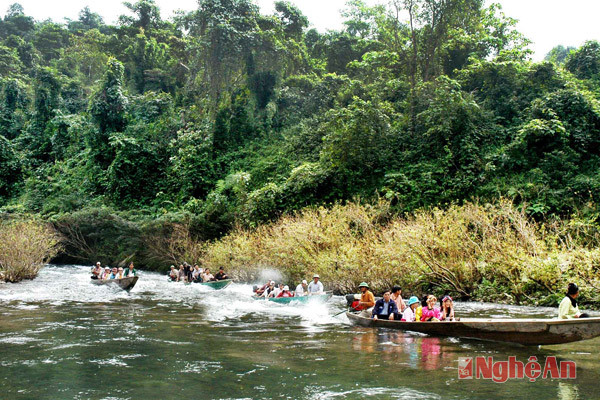Attracting tourists with 'smart tourism'
Online tourism business is growing faster than expected. Tourists’ consumption habits now depend heavily on technology and this change is an opportunity and a challenge for managers and suppliers to find solutions to develop “smart tourism”.
 |
| Tourists' travel spending habits depend heavily on technology - Illustration photo |
Pressure of "digital transformation"
According to the General Director of the Vietnam National Administration of Tourism, Nguyen Van Tuan, in Vietnam, the Industrial Revolution 4.0 poses both opportunities and challenges for the tourism industry. The Vietnamese tourism market has undergone many changes due to the development of technology, especially the rapid growth of online tourism business. This reality forces the components of the tourism industry to conduct digital transformation, towards forming an integrated system and exchanging smart tourism data, thereby creating added value for Vietnam's tourism products and services.
In that context, the Prime Minister issued Directive No. 16/CT-TTg on enhancing the capacity to access the Industrial Revolution 4.0 and minimizing the negative impacts of this wave in Vietnam, which clearly stated that tourism is one of the economic sectors prioritized for building a digital transformation strategy, aiming to promote the development of smart tourism. This is an important policy orientation for the tourism industry towards the goals set by Resolution No. 08-NQ/TW of the Politburo on developing tourism into a spearhead economy by 2020.
Analyzing further the pressure of digital transformation in tourism, Deputy Minister of Science and Technology Pham Dai Duong said that tourism businesses themselves need to be ready for drastic digital transformation, because this is an irreversible trend and all are placed in a race for survival. Developments in markets in many industries show that if businesses do not promptly carry out digital transformation, their future development will almost be closed.
Taking advantage of the benefits of the 4.0 revolution, the tourism industry is moving towards personalizing tourists' consumption. Mr. Nguyen Van Tuan gave an example that in the past, tourism consumption was implemented in many forms, mainly through travel agencies and business organizations. However, now each person can decide on their own consumption such as proactively booking airline tickets, hotels, applying for visas as well as deciding on their own schedule.
Thus, with the support of technology, the tourism industry will be continuously connected, making it easier for tourists to search for information, arrange reasonable departure and arrival schedules, stay longer, and shop more.
 |
| Giang River tourism in Pu Mat National Park. Photo courtesy of SM |
Increase competitiveness, retain tourists
Statistics show that online tourism is creating major changes and revolutions in business. Previously, to sell a tour, market and promote an image, tourism businesses had to distribute leaflets, organize introductory programs... but now those images are all posted on the Internet to reach customers. Any problems that tourists reflect will be consulted and processed online, without taking much time. Better service support will increase tourists' satisfaction and encourage them to come back.
Under pressure to transform digitally, many tourism businesses are implementing smart applications to increase competitiveness and retain tourists.
PYS Travel's Deputy CEO Trinh Dinh Minh said that PYS Travel is developing a synchronous customer management system, meaning that information related to each customer will be saved on one system. All employees can access this system to learn about customers' needs, preferences, and habits, thereby being able to serve them better.
The General Department of Tourism is also actively implementing a plan to apply technology to promote through e-marketing. In particular, information, history, and images of tourist destinations will be fully provided on the Internet through the website and official social networking sites of the General Department of Tourism on Facebook and Instagram.
This is a strategy that must be promoted in the coming time and the General Department of Tourism has just taken the first step. The orientation of building e-marketing is aimed at tourists, not managers. Tourists come from many markets with different languages, so e-marketing products will aim to reach as many markets as possible. The Tourism Advisory Board is supporting the General Department to build this project with a specific strategy on e-marketing for Vietnam tourism in 3 years, starting from 2017.
According to Thu Cuc/chinhphu.vn
| RELATED NEWS |
|---|

